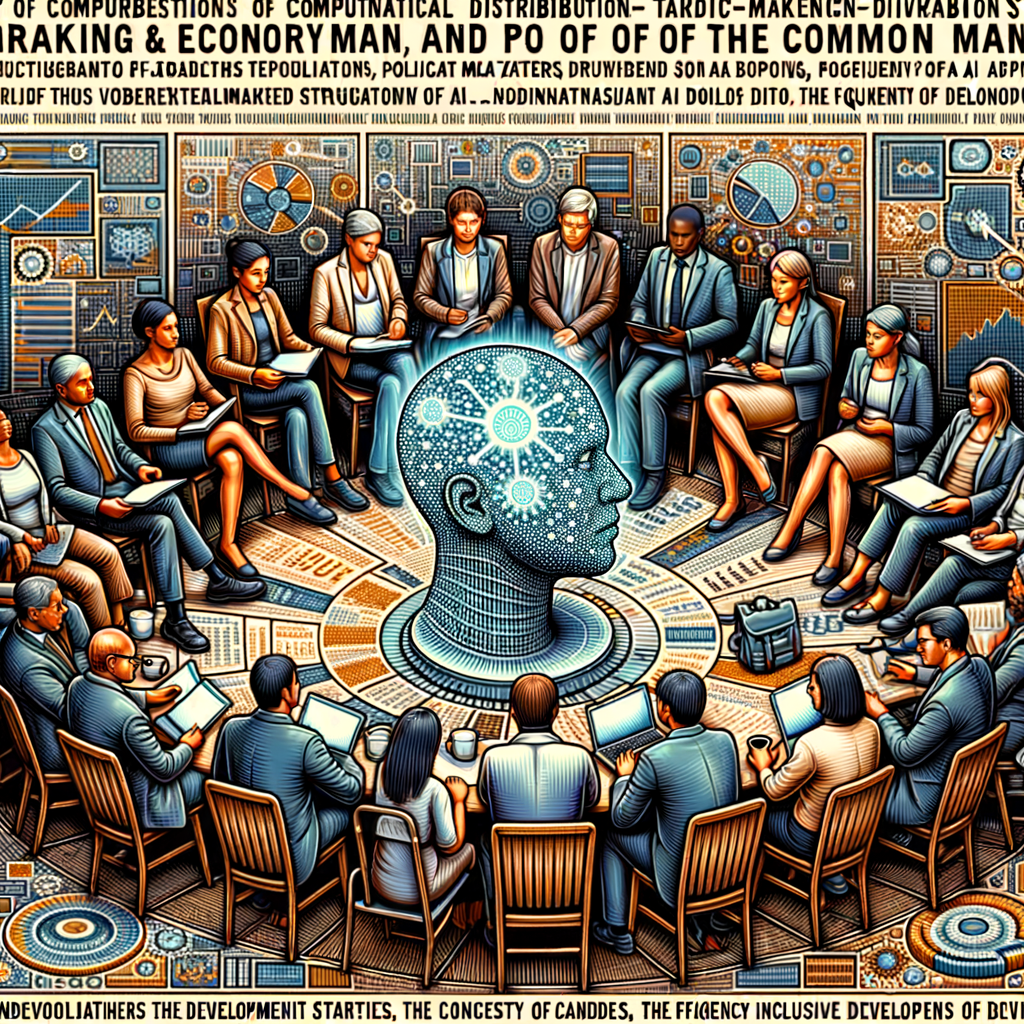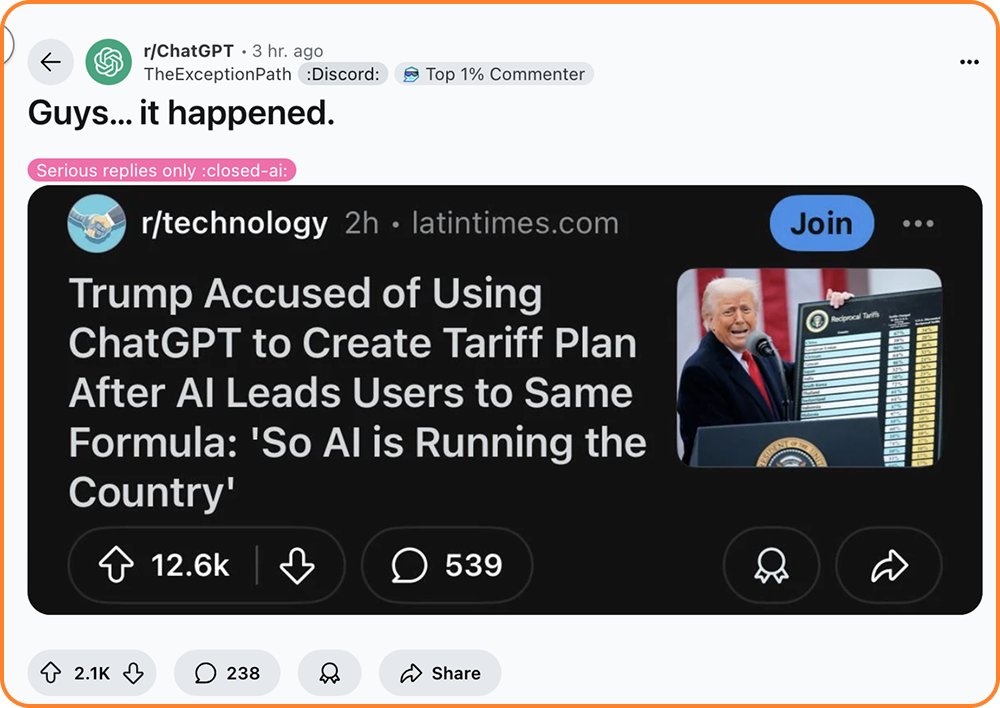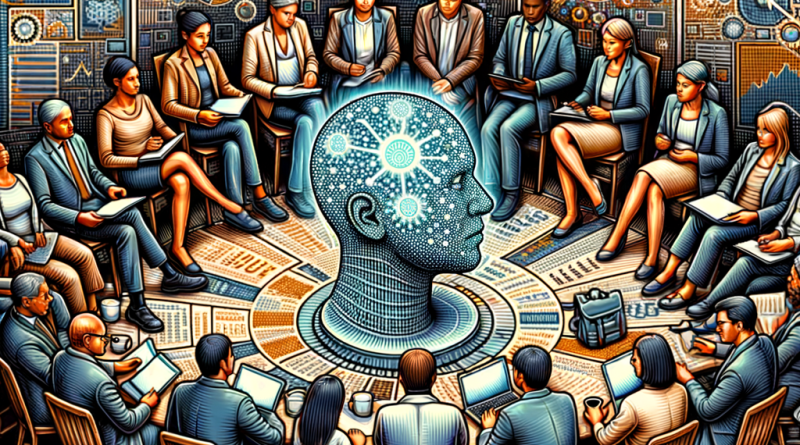Understanding AI: Misconceptions, Policy Influence, and the Expert-Public Divide

Are We All Wrong About AI? A Closer Look at AI’s Role in Policy, the Economy, and Public Perception
Artificial Intelligence (AI) is shaping our world in unprecedented ways. From tariff policies designed by machines to generative AI teaching itself Minecraft, the influence of AI is no longer subtle—or only theoretical. It’s here, real, and increasingly powerful. But how does this resonate with the public? And do AI experts view this transformation the same way you and I do?
AI Writing Policies: Fact or Fringe Fiction?
In early April 2025, many were baffled by the United States government’s new tariff policy. The structure and formula behind it were so complex that some economists couldn’t decode it—until reverse-engineering pointed to a common source: AI. All major models yielded similar logic, leading many to suspect the involvement of an AI-generated schema. While this isn’t confirmed, it’s not far-fetched. AI is already used in finance, legal services, logistics, and now it seems, economic governance.
Fun Fact: The policy sparked the worst stock market drop since the COVID crash.

Changes Across Industries: AI’s Economic Impact
AI’s acceleration might also throttle the brakes on infrastructure development. Microsoft reportedly delayed new data centers in the US, UK, and Australia due to the increasing cost of components—exacerbated by AI-driven global policy dynamics like tariffs on imports from East Asia.
But what about jobs? That’s where things get spicier.
AI Experts vs. The General Public: Perception Gap
According to new Pew Research, there’s a gaping perception disparity between AI experts and average American citizens. Here’s how they responded to key issues:
| Issue | Experts (% Positive Outlook) | Public (% Positive Outlook) |
|---|---|---|
| AI Will Improve Daily Life | 47% | 11% |
| Positive Economic Impact in 20 Years | 56% | 17% |
| Worries About Job Elimination | 39% | 64% |
Professions at Risk: Agreement & Disagreement
- Consensus: Cashiers, journalists, and software developers are all seen as vulnerable.
- Disagreement: Experts think AI will majorly impact truck drivers; the public worries more about teachers and doctors.
Representation Matters in AI Design
Experts recognize a representation gap in AI development:
- 75% believe men’s perspectives are well represented in AI tools
- Only 44% think the same for women
- Only 25–27% think Black or Hispanic perspectives are included
Public Confusion = Industry Responsibility
Upwards of half of the general public responded with “not sure” to many questions. Rather than a sign of apathy, this highlights a knowledge gap—one the AI industry should take seriously if it wants healthy societal integration.
Future Forecasts: Where Is AI Headed?
One of the most compelling media pieces of the year is a 3-hour simulation: “2027 Intelligence Explosion.” This speculative but data-driven timeline explores how AGI (Artificial General Intelligence) might come to life—month by month.
What Makes This Prediction So Believable?
- Daniel Kokotajlo correctly forecasted 4 years of AI progress—back in 2021!
- The model takes into account recursive intelligence improvements, funding pressure, and societal confusion.
Whether you’re an optimist or a skeptic, this video is a must-watch.
Claude AI vs. Gemini 2.0: Who Hallucinates Less?
Claude 3.7 (from Anthropic) is gaining attention for its ability to fact-check itself. Use this prompt:
“Please fact check each fact in the above output against the original sources to confirm they are accurate. Assume there are mistakes, so don’t stop until you’ve checked every fact.”
Combined with methods like chain-of-thought prompting and retrieval systems, Claude is quite accurate. Yet, Vectara’s Leaderboard gives the lowest hallucination score to… Gemini 2.0 Flash.
Infographic: AI Model Hallucination Rates

A Final Meow 🐾
From policies to public perception, the gap between how experts and everyday people view AI is wider than ever. While the tech continues to advance rapidly, it also reinforces a critical need for education, transparency, and inclusive development practices.
So are we all wrong about AI? Not entirely. We’re just looking at it from different sides of the same coin.
Until next time, stay curious—and maybe ask your AI buddy how it really feels about tariff policies. 😉
Explore More
- Pew Research on AI & Public Perception
- Vectara Hallucination Leaderboard
- 2027 Intelligence Explosion – Video
Tags:
#ArtificialIntelligence #AIPolicy #ClaudeAI #PublicVsExperts #JobsAndAI #AGI #TechForecast #AIHallucinations #PewResearch #GeminiAI #FutureOfWork #InclusiveAI #ChatGPT #Claude3
